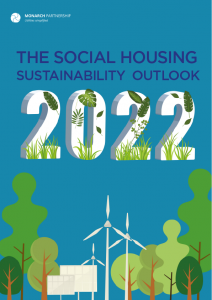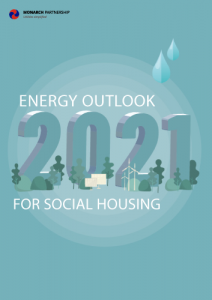This summer the UK government will bring into action the ‘Right to Repair’ law. This could be a huge help to consumers who have long complained that appliances don’t last long enough. We look at the new law’s financial and environmental benefits, and how it will impact property managers.
What is the ‘Right to Repair’ law?
Under the new rules, manufacturers will be legally obligated to provide spare parts and manuals for the first time. This could extend the lifespan of products by up to ten years, significantly reducing CO2 emissions and electrical waste.
Increased energy efficiency could also save the average UK resident up to £75 a year on their utility bills. Not to mention the money saved by being able to repair broken or faulty appliances as opposed to throwing them away.
This point was emphasised by the BEIS Secretary, Kwasi Kwarteng, who said:
“Our plans to tighten product standards will ensure more of our electrical goods can be fixed rather than thrown on the scrap heap, putting more money back in the pockets of consumers whilst protecting the environment,”
Why we need a ‘Right to Repair’ law
The ’Take, Make, Use, Discard’ cycle has become all too common. E-waste researchers, Material Focus, estimate the average UK resident disposes of 23.9kg of electrical goods every year. This puts the cost of electrical waste at £370m a year. Reducing this is a crucial part of plans to lower global greenhouse gas emissions.
What will this mean for property owners?
The ‘Right to Repair’ law aims to extend the lifespan of your appliances by making it easier to repair faulty goods. For property managers, this means lower costs and more options. For example, any appliances provided to tenants should last longer, be easier and cheaper to repair and lower the property’s carbon footprint.
This means less electric waste ending up in landfills and officials have estimated the average household will save £75 a year under the new legislation. Those with a larger property portfolio stand to see considerable savings.
What appliances will the law cover?
The ‘Right to repair’ will include:
- Refrigerators
- Washing machines
- Dishwashers
- TV’s and computer screens
- Light sources
- External power supplies
- Electric motors
- Vending machines
- Power transformers
- Welding equipment
Due to liability concerns, manufacturers will only be obligated to provide certain replacement parts and manuals to professional repair businesses. Campaigners have pushed back against this, encouraging the government to allow buyers to conduct their own repairs.
What about phones and tablets?
Unfortunately, these products are not included in the summer legislative changes. However, the European Commission is hoping to extend the measures to include smartphones and tablets by the end of the year.
Research from the European Environmental Bureau (EEB) indicates that extending the life of smart devices by a year would save around 2 Mt CO2 annually by 2030. That is the equivalent of taking over a million cars off the roads for a year.
New label guidelines
While appliances currently include an efficiency rating label, the standards are somewhat out of date. 90% of appliances rate above an A with most appliances currently rated A++ or higher. This has allowed a lot of appliances to appear more ‘green’ than they may actually be.
Good progress has been made in product efficiency over the last decade and with that comes the need for a new rating system. In March, updated labelling was introduced in the UK. This includes the new A-G ranking system which better reflects new standards for efficiency and general reliability.
How can Monarch help?
At Monarch we work with over 200 housing associations, helping them to navigate the ever-changing energy landscape. Our holistic energy management services provide end-to-end coordination of complex admin such as procurement, metering and carbon compliance.
By finding you the most efficient and cost effective solutions, our team of energy specialists can help guide your organisation towards a sustainable future.
To find out how we can help make your property as energy and cost efficient as it can be get in touch today.















